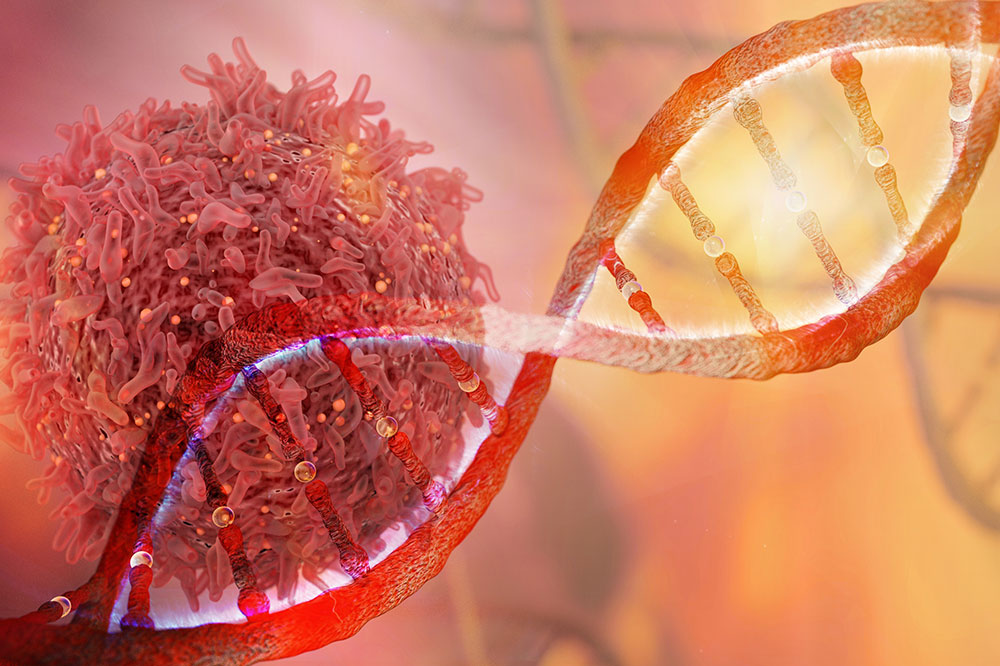
The Link Between Cancer and Genetics
Cancer is a genetic disease in that it is caused by genetic changes that control cell function, particularly changing how they grow and multiply. Genes are present in the DNA of every cell in the body, and certain gene changes can lead cells to become cancerous. This article addresses the complex link between cancer and genetics.
1. Genes that cause cancer
Most genes that lead to cancer development fall into three key categories:
- Tumor suppressor genes
These are guarding genes that usually curtail cell growth by repairing mismatched DNA, controlling when a cell dies, and supervising the division of cells into new ones. When these genes mutate, they cause cells to grow uncontrollably, which can result in a tumor. - Oncogenes
These genes convert a healthy cell into a cancerous cell, and these mutations are not known to be inherited. - DNA repair genes
These genes normally perform damage control in the case of mistakes during DNA replication, and many of them operate as tumor suppressor genes. An error in the DNA repair gene causes the mistakes to stay uncorrected. These errors then take the form of mutations, which can lead to cancer.
2. Cancer and genetic mutations
Mutations are common and may be beneficial, neutral, or harmful, depending on where in the gene the change occurs. The body usually corrects most mutations, and a single mutation does not typically result in cancer. The disease occurs from multiple mutations that occur over an individual’s life, which is why increasing age is a common risk factor. There are two major types of genetic mutations that can cause cancer:
- Germline mutations
This form of mutation occurs in the sperm cell or egg cell that formed the baby. This cell then divides many times as the embryo grows into a baby. Since every cell comes from this initial cell, such mutation is present in each cell and can also be passed on to the next generation. These types of mutations cause inherited cancer, but they only account for about 5-20 percent of all cancers. - Acquired mutations
These types of genetic mutation are the most common cause of cancer. They do not come from a parent but are acquired later in life as a result of damage to a cell’s genes. Factors like exposure to UV light or radiation, tobacco, and increasing age elevate the risk of an acquired mutation . An acquired mutation begins in one cell, but it is then passed on to the new cells that develop from the infected cell. For instance, if a mutation occurs in the genes of a breast cell, it can lead to the development of a tumor that causes breast cancer. Acquired mutations are not present in every cell of the body, so they are not passed on to the next generation.


